The moment the first trailer for Rental Family dropped, it felt like the clouds parted and light poured down in a sign from the universe. This was the movie that would finally put Brendan Fraser, an actor I adored in my youth, on the map. The Brenaissance film that was promised.
Back when I was in kindergarten, I was a kid who only watched Bruce Lee flicks (able to recite every line from memory) or random anime on TV. Never anything scary. I was a wimp, you see—a little scaredy-cat. But my mom had a VHS copy of The Mummy that I broke from loving it too much with repeated rewatches. Granted, I probably shouldn’t have been watching it at five (the Freddy vs Jason trailers were too scary for me), but hey, we were also the kind of family who treated The Godfather and Scarface as holiday background movie traditions, so who can blame me for experiencing a film before I was ready?
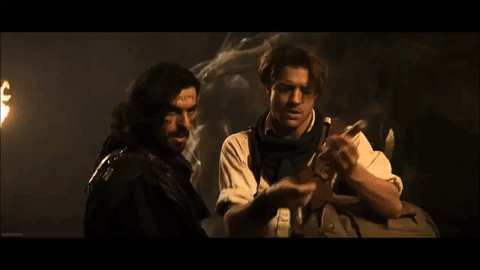
That film wasn’t just another entry in my early cinematic viewing. It was also an early onset bisexual awakening (Fraser, Rachel Weisz, Arnold Vosloo, Patricia Velasquez, and Oded Fehr, I stood no chance). As far as my mom knew, I just found Fraser “really cool,” but we all know what I meant without the words to articulate it. But, more importantly, it opened my eyes to what an actor is. Fraser not only became the definition of the word, he also became the blueprint for my taste in films: action mixed with comedy, charisma balanced with earnestness, and a softness against toxic masculinity. Still, whenever I rewound a tape in our modest Cabrini Green project building (Delores Wilson is my grandmother, by the way) after school, I was enamored by the gravity of his art. From then on, I only wanted my mom to rent Fraser movies from Blockbuster because he was the best proof that an actor could be romantic, funny, heroic, and deeply human all at once.
I watched both George of the Jungles and I even watched those Looney Tunes live action films—dated feature-length advertisements, sure, but formative cinema for my hero's uncanny ability to charm no matter how ridiculous the premise of the movie. And as a child who had my eight grade mentor break the news one random evening after school that just because I saw Bruce Lee in a film yesterday doesn’t mean he’s still alive, my mom telling me Fraser was still alive doing things was both a comfort about the fleeting mortality of life and a promise that I’d still be able to be awed by his movies for years to come.
But the older I got, the fewer movies I saw him in. And after The Mummy 3 at 11 (starring Jet Li and Michelle Yeoh—my action movie Mt. Rushmores of Hong Kong cinema), he virtually disappeared.
To celebrate our second birthday, Aftermath is having a sale. For a limited time, get your first month of our Reader tier for just $1!
So when The Whale arrived when I was comfortably feeling life out as an adult, marketed as his “comeback,” I felt conflicted. It won him awards, but to me it reeked of Oscar-bait misery. The direction of Darren Aronofsky (a director I can comfortably call a hack on a good day)leaned into trauma exploitation, treating Fraser’s character like a wounded puppy in those Sarah McLachlan ASPCA commercials rather than an actor with his full, wide range of talent on display. His performance was strong—especially since he was working through his own Hollywood trauma in the film—but the movie itself felt like audiences were crying at him instead of with him. That one goddamn poster of him looking miserable didn’t help.
That’s why director Hikari’s Rental Family feels like the real Brendan Fraser renaissance. Finally, Fraser isn’t just doing comic-book jury duty or prestige cinema misery porn—he’s back as a full actor. Here, he plays Phillip Vandarpleog, an American actor whose career bloom has faded, reduced to wacky commercial gigs to pay the bills in Japan. Until he stumbles into the bizarre (and actual Japanese industry) world of “rental families”---services where actors are hired to play roles in people’s lives. The film is basically Nathan Fielder’s The Rehearsal meets Kappa Mikey, but played straight. Not therapy, but some bizarro capitalistic extra steps to something resembling closure for clientele. Be it stand-ins at their funerals, where they get to hear good things and hard truths about themselves never meant to reach their ears, infidelity interventions, weddings, and even surrogate fathers.
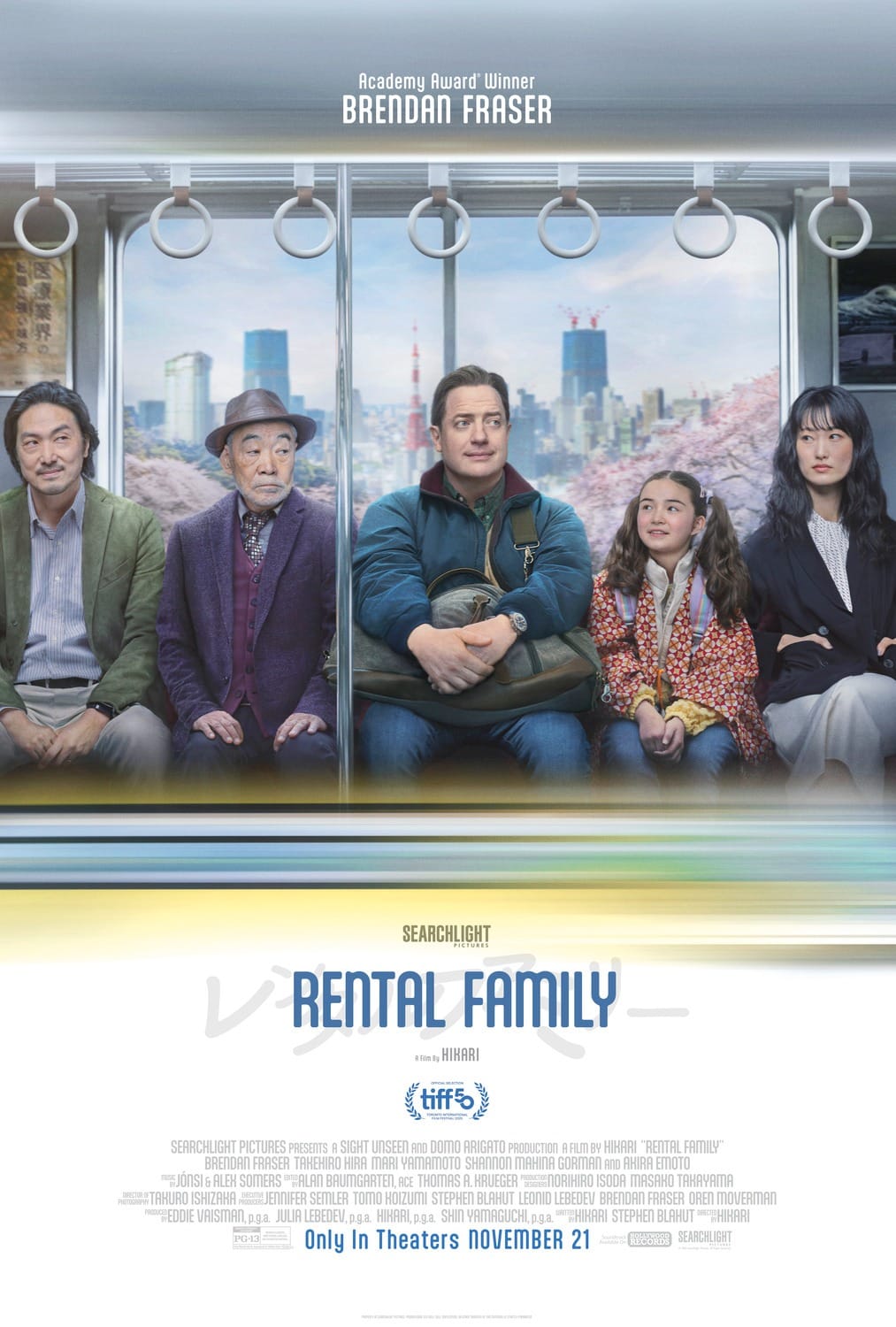
I caught the film (which released worldwide on my freaking birthday—a sign, I tell you!) at the Chicago International Film Festival, and I loved it. So much so, I even looked up the exact weekender bag Fraser lugged around in the film to feel vicariously close to my childhood hero in my own parasocially acceptable adult way. But more than anything, Rental Family feels revelatory because it gives Fraser space to be the actor he always was: not trapped in sad-drama roles, but thriving in a dramedy with a mix of humor and heart that shaped my love of movies.
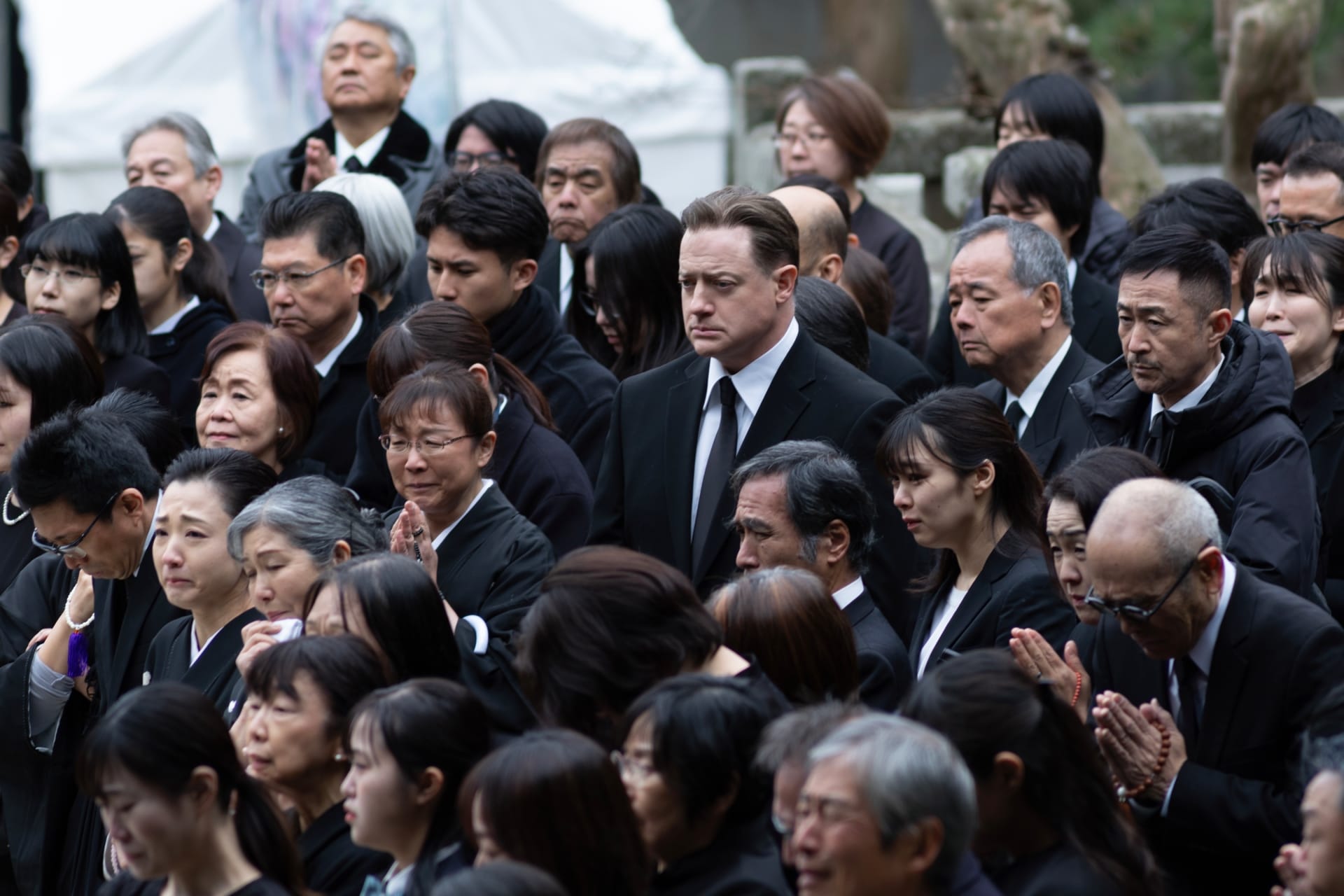
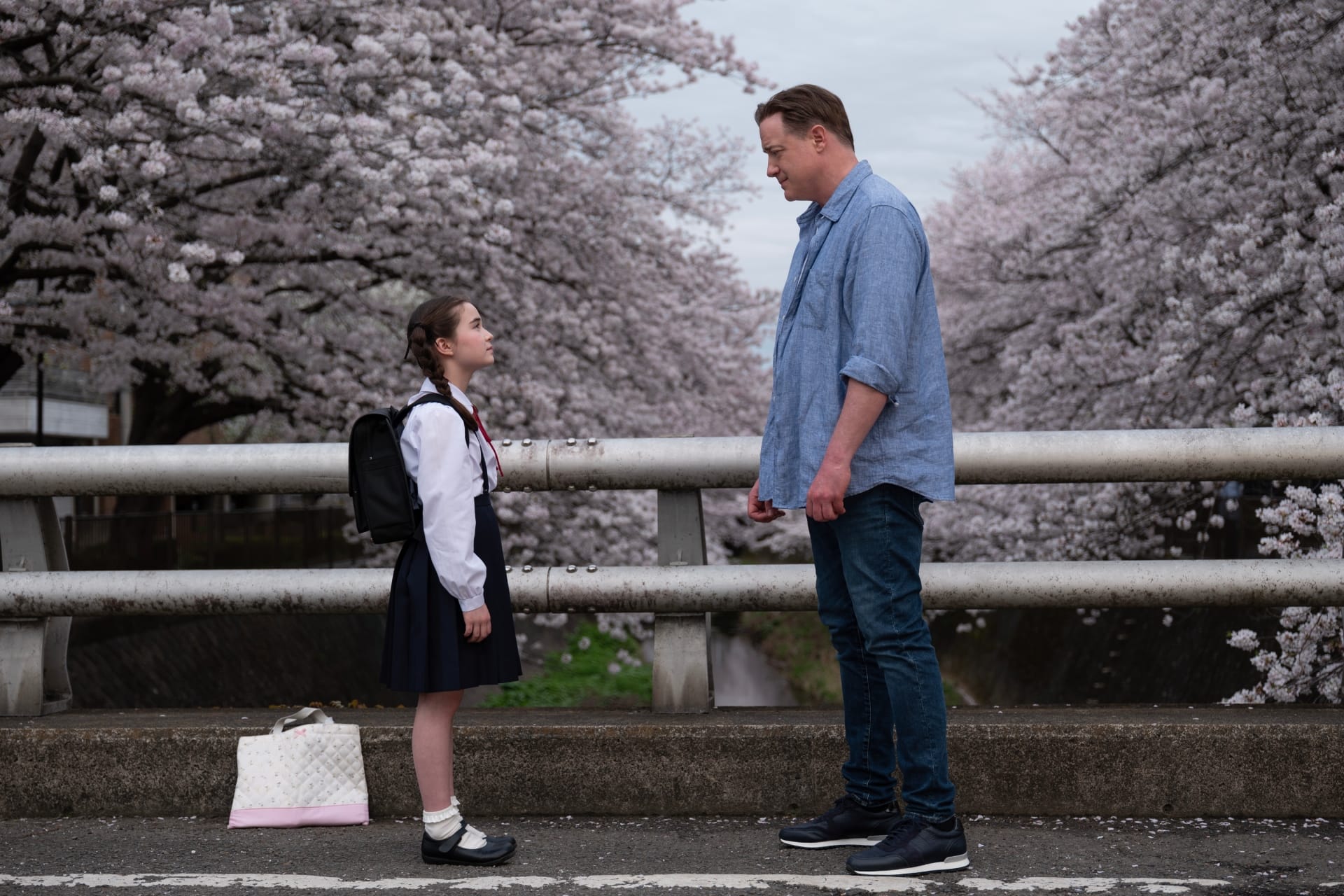
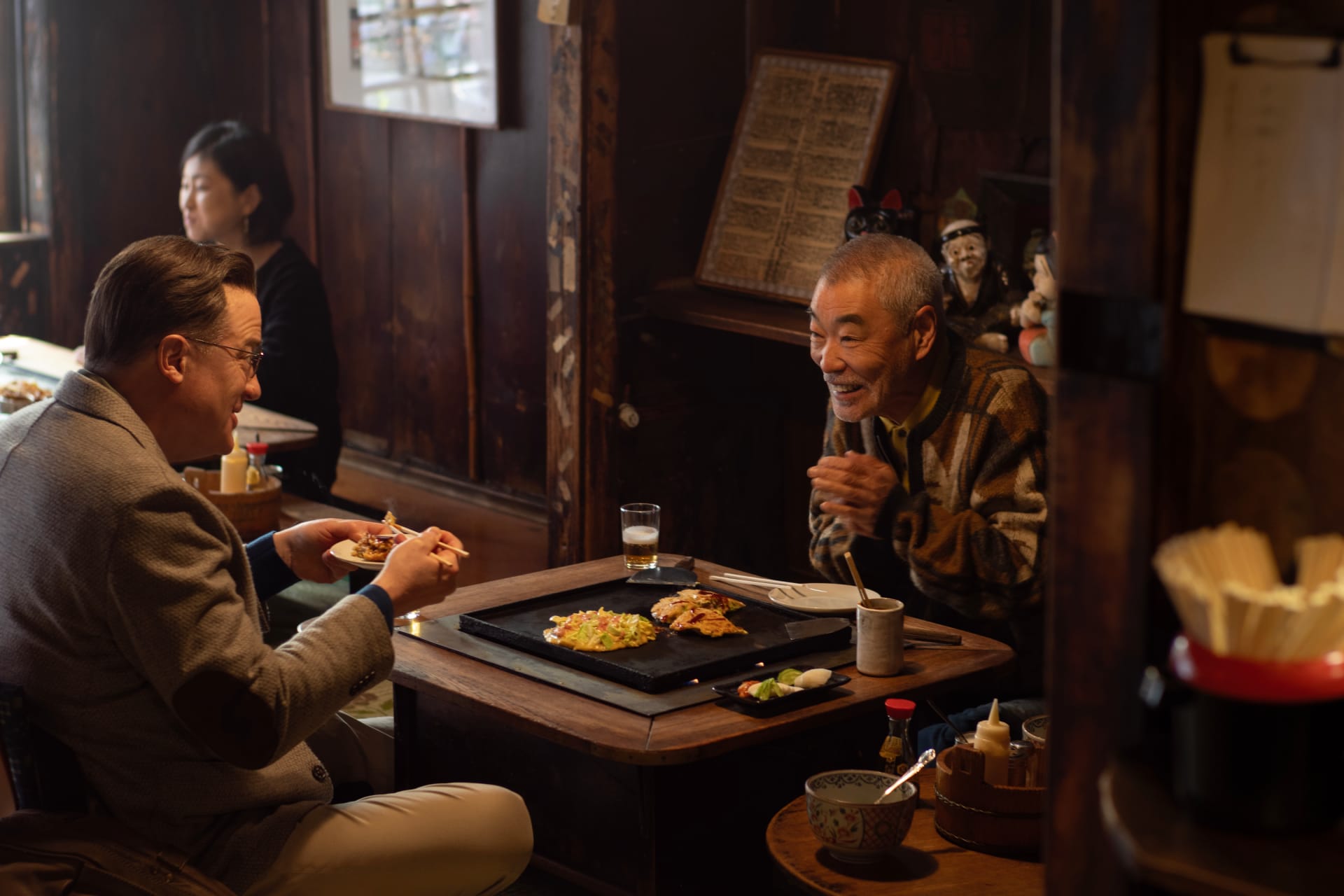

Searchlight Pictures
If the past seven paragraphs weren’t evident enough, I can’t talk about this film objectively, if there ever were a way to endeavor to do so with any piece of media. I’m too close to it. Fraser was a linchpin in my appreciation of cinema, and seeing him return to the kind of work that made him a shining star in my eyes—but with deeper emotional resonance, I finally have the words to describe—feels…well, moving.
If there ever were an actual inception point for his career resurgence, it is Rental Family. While sure, the film yadda yaddas its way around not fully addressing the awkwardness of rental families as a real-life Japanese industry, I’m giving Fraser his flowers for reminding me that he’s just as much a tour de force as he was in my childhood: a kind, funny, deeply human presence both on-screen and off. May the sun never set on the Brenaissance.




